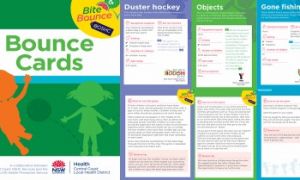When going for a job interview the most nerve-wracking part of it, is answering those questions that may be asked. The following article provides a list of interview questions and sample answers including About Yourself, General/Scenario Based Questions, NQF/EYLF Questions etc. that you can prepare for.
About Yourself
When talking about yourself during an interview, it's a way to get an insight into your personality and to determine if you're suitable for the position. Don't go into too much detail and don't say too less. Share personal interests, hobbies, strengths and qualities that make you the ideal Educator for the job.
Some questions may include:
- Why do you want to work here? - Research the company and mention positives about why you want to work there, such as opportunities to grow, further study, etc.
- Tell me a bit about yourself - Include interests, hobbies, volunteer work, qualities.
- Why do you want to work in childcare? - Be honest and show your passion for working with children.
- What are your strengths? - Emphasize what you're good at (your patience, you're creative, you're enthusiastic, your versatile - and provide an example of your strength in a childcare situation).
- What are your weaknesses? - Do not talk about your personal qualities as a weakness, keep it professional such as being too critical, attempting to please everyone, unfamiliar with the software, missing out on small details etc. With any weakness, you MUST make sure you say how you are working to fix your weakness with an example.
- What are your long-term goals – Further studies, your career path etc?
- Tell us about your experience working with children - Make sure it is positive, talk about experiences you planned, interests you got involved in etc.
- What age groups do you prefer to work with? - Be ready for why.
- Do you have any physical/mental issues that may impact your ability to do the role? - If you are pregnant say so, if you are trying to get pregnant say so, if you have back pain say so, if you have anxiety say so. You would rather discuss it upfront.
- What qualities do you have that could add to our centre? - Read the job description and provide examples of something unique that you can bring to the centre. Such as speaking another language.
- Why do you wish to leave your current employer? /Why did you leave your last job? - DO NOT discuss any negative issues from your previous centre, you could say you moved or you wanted a different position than your previous centre couldn't offer. Never bad mouth another centre even if you left on the worst of terms.
General/Scenario-Based Questions
These questions typically relate to your experiences while working in a centre. Take a minute to gather your thoughts before answering the question and be confident when answering. If you don't know an answer don’t say "I don't know" You could say something like "I haven’t had experience with that but this is what I'll do" etc. Think of what you would do in each scenario before answering.
- How do you handle misbehaviour in the room?
- How would you discipline a child?
- Describe a time when you have experienced conflict with a colleague/parent and how you dealt with it.
- What would you do if children were fighting and got physical?
- How does the day of an infant in your classroom differ from the day of a toddler in your classroom?
- What do you find to be the most challenging thing about working with children?
- How do you feel about toilet training and changing nappies?
- Describe a time you resolved an issue with an unhappy parent.
- What would you do if you saw a child coming to the centre with bruises etc. on them?
- What will you do when there is an injury or accident?
- If you observed an angry educator grab a child's wrist and lift the child, what would you do?
NQF/ EYLF Questions
Please make sure that you are aware and have an understanding of the NQS, EYLF/MTOP, WHS, Child Protection and Ethical and Legal Issues in early childhood settings. The qualification you have studied would have covered these and you must answer these questions diligently. You should be very familiar with NQF by now.
Some questions may include:
- Are you aware of child protection procedures and regulations? - Make sure you answer based on your state, being a mandatory reporter and what would you do if you suspect abuse.
- How would you program with the EYLF and NQS - Something like focus on ensuring that the educational program and practice is stimulating and engaging and enhance children’s learning and development by responding to children’s interests and scaffolding their learning.
- What is the importance of policies and procedures in the workplace? - Written, sourced and current policies are extremely important because they form the foundation of quality practice. They support childcare professionals to make informed decisions about their daily practices. Policies need to be developed in collaboration with all stakeholders to help everyone to understand why a practice is necessary, who is responsible for it, when and where the practice should occur and how it happens.
- What is the importance of the EYLF - The EYLF is a guide that consists of Principles, Practices and 5 main Learning Outcomes along with each of their sub-outcomes, based on identity, community, wellbeing, learning and communicating. The Learning Outcomes are to be used to reflect on children’s learning and focus on what a child can achieve rather than what they can’t. The Early Years Learning Framework enables childcare professionals, educators and early childhood teachers within an early childhood setting to extend and enrich children’s learning, and provide opportunities for children to develop a foundation for learning and for children to become successful learners.
- What is the NQS - The National Quality Standard (NQS) is a key aspect of the National Quality Framework (NQF) and sets a high, national benchmark for early childhood education and care, and outside school hours care services in Australia. The NQS brings together the 7 key quality areas that are important to outcomes for children.
- Explain in your own words your understanding of the National Regulations and how they operate in your role as an educator. - National Regulations support the legislation and provide a variety of details to early childhood settings including LDC and FDC throughout Australia about operational requirements. As an educator, the National Regulations support my role and my decisions in providing children and families with high-quality care and services. The policies that are included in the Regulations are service approvals, assessments and ratings, staffing arrangements, programs and practices, health and safety, and physical environment.
- Can you tell me about the EYLF - The EYLF is a guide that consists of Principles, Practices and 5 main Learning Outcomes along with each of their sub-outcomes, based on identity, community, wellbeing, learning and communicating. The Learning Outcomes are to be used to reflect on children’s learning and focus on what a child can achieve rather than what they can’t. The Early Years Learning Framework enables childcare professionals, educators and early childhood teachers within an early childhood setting to extend and enrich children’s learning and provide opportunities for children to develop a foundation for learning and for children to become successful learners.
These interview questions are just some of the ones that you may be asked and depending on the position you are applying for also depends on the questions during your interview. For Room Leaders and Directors, your questions will be in-depth, more towards the NQF, and scenario-based questions. Going for these positions you will need to make sure that you are fully aware of the EYLF and NQF.
Further Reading
Preparing For An Interview - This article should give you a heads-up in preparing for an interview in a childcare centre for a traineeship, casual or full-time position.
Illegal Interview Questions - The following article provides a list of questions that are irrelevant and are considered unlawful and discriminatory.







 As an Educator in Australia, your pay rate falls under the Children’s Services Award 2010. This award states the minimum amount that an employer can
As an Educator in Australia, your pay rate falls under the Children’s Services Award 2010. This award states the minimum amount that an employer can When working as a qualified Early Childhood Teacher (with a university degree) within a service, your rate of pay will come from the Educational Services
When working as a qualified Early Childhood Teacher (with a university degree) within a service, your rate of pay will come from the Educational Services When working as a Diploma Qualified Educator your pay rate is from the Children's Services Award 2010. This Award states your minimum rate of pay
When working as a Diploma Qualified Educator your pay rate is from the Children's Services Award 2010. This Award states your minimum rate of pay When working as a Cert 3 Qualified Educator, your pay rate is from the Children's Services Award 2010. This Award states your minimum rate of
When working as a Cert 3 Qualified Educator, your pay rate is from the Children's Services Award 2010. This Award states your minimum rate of Educational Leaders play a crucial role in their early childhood service by ensuring that the educational program aligns with best practices and supports the holistic
Educational Leaders play a crucial role in their early childhood service by ensuring that the educational program aligns with best practices and supports the holistic In early childhood education and care, ratios are more than a technicality—they are a frontline safeguard. Every child deserves responsive supervision, emotional connection, and developmental
In early childhood education and care, ratios are more than a technicality—they are a frontline safeguard. Every child deserves responsive supervision, emotional connection, and developmental Here’s a comprehensive Mobile Phone and Smart Watch Policy tailored for early childhood education and care (ECEC) services in Australia, aligned with the latest 2025
Here’s a comprehensive Mobile Phone and Smart Watch Policy tailored for early childhood education and care (ECEC) services in Australia, aligned with the latest 2025 With the new national child safety reforms kicking in on 1 September 2025, early childhood services like yours have a real opportunity to lead the
With the new national child safety reforms kicking in on 1 September 2025, early childhood services like yours have a real opportunity to lead the The Sea of Fish Challenge is a national initiative that invites children, educators, families, and communities to create and display fish artworks as a symbol
The Sea of Fish Challenge is a national initiative that invites children, educators, families, and communities to create and display fish artworks as a symbol Across the early childhood education and care sector, educators are sounding the alarm: current staffing ratios are insufficient to deliver safe, meaningful, and developmentally appropriate
Across the early childhood education and care sector, educators are sounding the alarm: current staffing ratios are insufficient to deliver safe, meaningful, and developmentally appropriate


